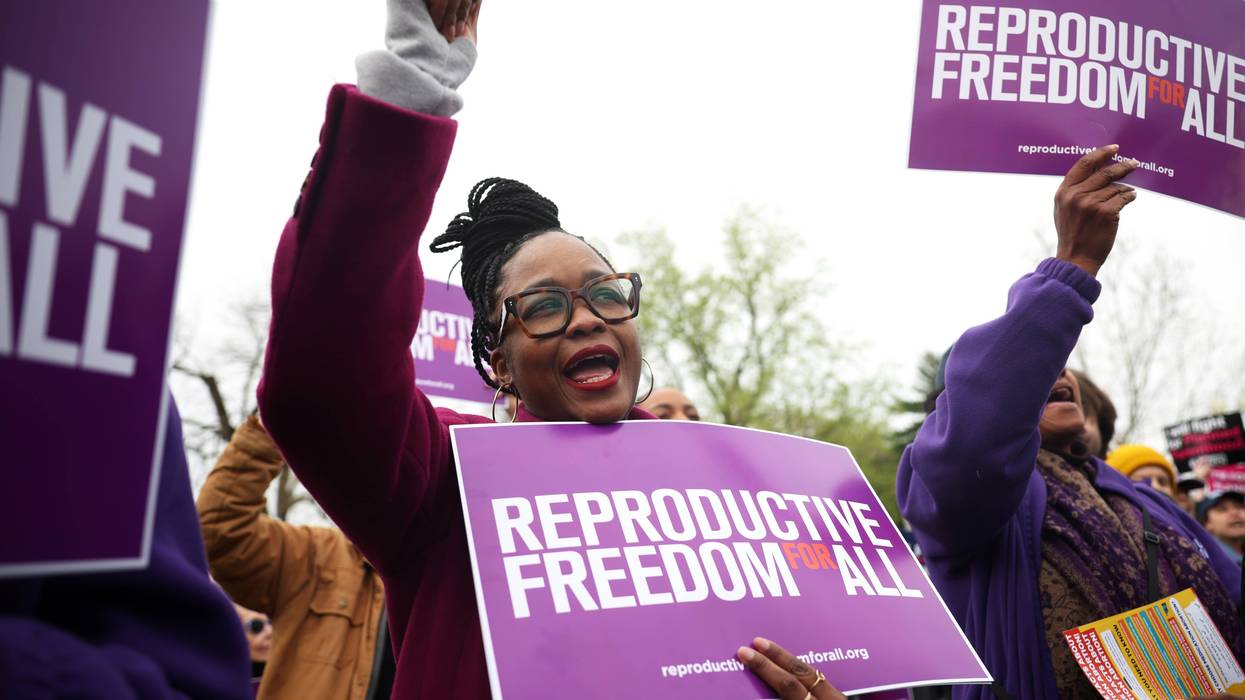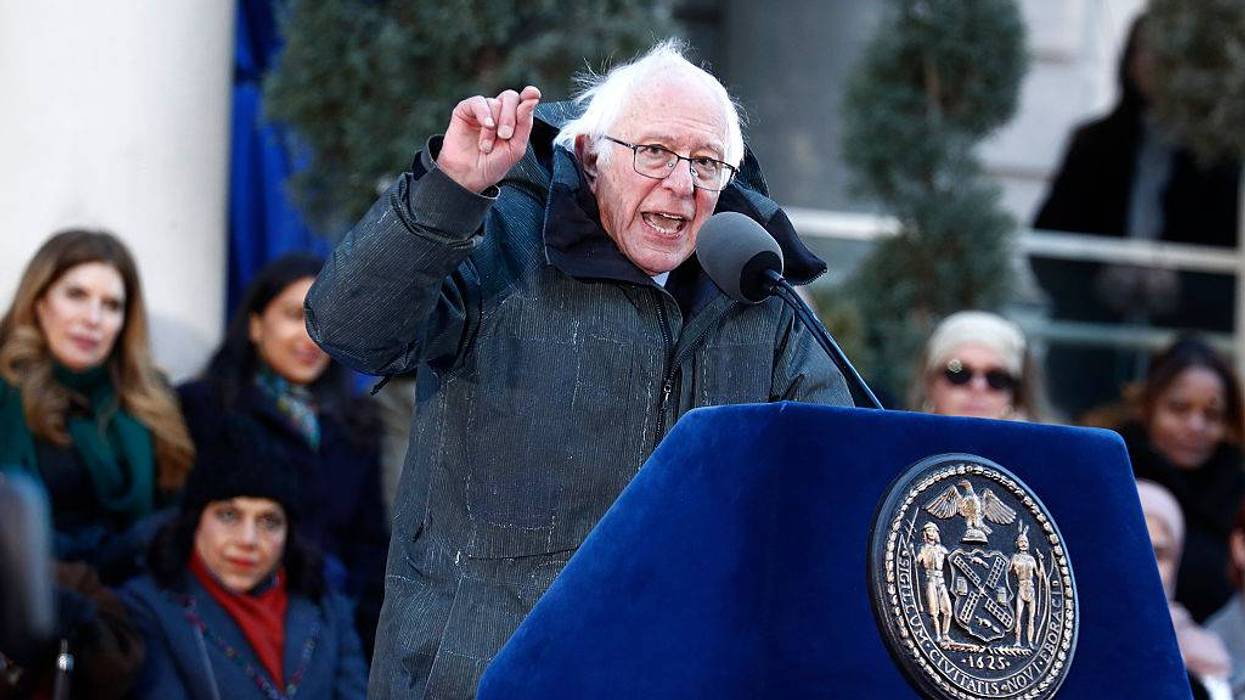Probe of Fetus at South Carolina Water Plant Highlights Criminalization of Pregnancy Loss
"No one should have to live with the fear that their miscarriage or stillbirth could result in cops showing up at their door," said one researcher.
The number of people who have faced criminal charges related to their pregnancies has soared since the US Supreme Court overturned Roe v. Wade, and now, a sheriff's office in South Carolina is investigating a fetus found at a water treatment plant.
The Sumter County Sheriff's Office announced Friday that deputies were called to the plant on Edgehill Road after workers found the fetus, which was sent to the Medical University of South Carolina, according to The State. County Coroner Robbie Baker said that "it was a small fetus. Probably not more than 6 inches long. It was somewhat developed."
Baker shared the findings from the autopsy on Monday: The fetus was just 13-15 weeks, male, and showed no signs of trauma. ABC News 4 reported that he also said this was being ruled a stillborn death—even though a stillbirth is generally defined as a pregnancy loss after 20 weeks, and a loss before that is a miscarriage.
The South Carolina Law Enforcement Division is "testing tissue samples to determine the race and locate the mother," according to WIS News 10. "The coroner said the race could not be immediately determined due to how long the fetus had been sitting in sewer chemicals."
As Kylie Cheung wrote Monday at Jessica Valenti's newsletter Abortion, Every Day: "Our immediate questions: Why are pregnancy remains being investigated by law enforcement at all? How can 14-week fetal remains be ruled a 'stillborn death'? And why are state authorities trying to determine the race of these pregnancy remains? This is particularly concerning given that women of color are overrepresented among criminal cases involving pregnancy."
Such probes have become "all too routine," Laura Huss, a senior researcher at If/When/How, told Cheung. "Pregnancy losses aren't crimes... No one should have to live with the fear that their miscarriage or stillbirth could result in cops showing up at their door, which is what investigations and media stories like this create."
The advocacy group Pregnancy Justice said last year that "from June 2022 to June 2024—the first two years after the Supreme Court's decision in Dobbs v. Jackson Women's Health Organization, which overturned Roe v. Wade—prosecutors initiated at least 412 cases across the country charging individuals with crimes related to their pregnancy, pregnancy loss, or birth."
"So what is the point of this investigation, beyond terrorizing women through control and surveillance of their bodies?"
Since Roe's reversal, far-right politicians and anti-choice organizations have ramped up their push for more state and federal restrictions on reproductive freedom. South Carolina groups that fight for such policies—from abortion bans based on gestational age to fetal personhood legislation—are now using the fetus found there to advocate for new state laws.
One proposal would "require the Department of Environmental Services to conduct testing for urinary metabolites in certain wastewater treatment facilities," Fox Carolina reported. Another would prohibit the "mailing, shipping, or prescribing of abortifacients, including from out-of-state sources," as well as "classify committing or attempting to commit an abortion using an abortifacient on a mother as a felony punishable by up to 10 years imprisonment or a fine of up to $100k."
Almost every action after pregnancy loss has come under scrutiny. Many of these laws, like the crime of “concealing a birth,” date back to the 1600s, used to criminalize unwed women who were thought to be more likely to hide & end their pregnancies, fearing intense societal shame and repercussions.
[image or embed]
— Pregnancy Justice (@pregnancyjust.bsky.social) January 29, 2026 at 11:42 AM
Last month, Pregnancy Justice released a report that "maps the matrix of laws and policies that can be used to criminalize postpartum people for how they respond to their own pregnancy loss in every state." Its section on South Carolina says:
Although South Carolina does not have a broad prenatal personhood law, criminal or otherwise, its state Supreme Court establishes broad criminal prenatal personhood with the harmful proposition that criminal statutes apply to "viable fetuses" unless the Legislature expressly says otherwise. A former attorney general also noted his position that prenatal personhood applies broadly to South Carolina's laws. By extension, an attempt to criminalize the "destruction or desecration" or transportation without a permit of viable fetal remains could be made.
Separately, people are also required to report "stillbirth[s] when unattended by a physician."
Pregnancy Justice legal director Karen Thompson told Cheung that criminal charges shouldn't be applicable in the case of the fetus found in South Carolina, whether it was a miscarriage or an abortion, because of the "viability" requirement in state law. She added, "So what is the point of this investigation, beyond terrorizing women through control and surveillance of their bodies?"
The South Carolina investigation follows last week's arrest of a Kentucky couple, Deann and Charles Bennett, after she was taken to a hospital following a reported miscarriage in November 2024. According to the Lexington Herald-Leader, they were each charged with reckless homicide, and she also faces charges of abuse of a corpse, concealing the birth of an infant, and tampering with physical evidence.
Reporting on that case last week, Valenti and Cheung pointed out that "right now, all of the available information is coming from cops and law enforcement—so take it all with a grain of salt. Again and again, Abortion, Every Day has found police lying about these arrests, or misrepresenting what really happened. Too often, local media will parrot those facts' uncritically and destroy people's lives in the process."
"Already, Deann and Charles' mugshots have been splashed across Kentucky crime pages," the pair added. "Deann is seen sobbing in hers."
According to Pregnancy Justice's January report: "Although Kentucky's broad prenatal personhood law is enjoined, the state Supreme Court provides that a viable fetus is a human being within the meaning of the penal code. By extension, an attempt to criminalize the nonreporting and disposal of viable fetal remains could be made. Separately, Kentucky has a statute that prohibits 'concealing [a] birth' to 'prevent a determination of whether it was born dead or alive.'"


